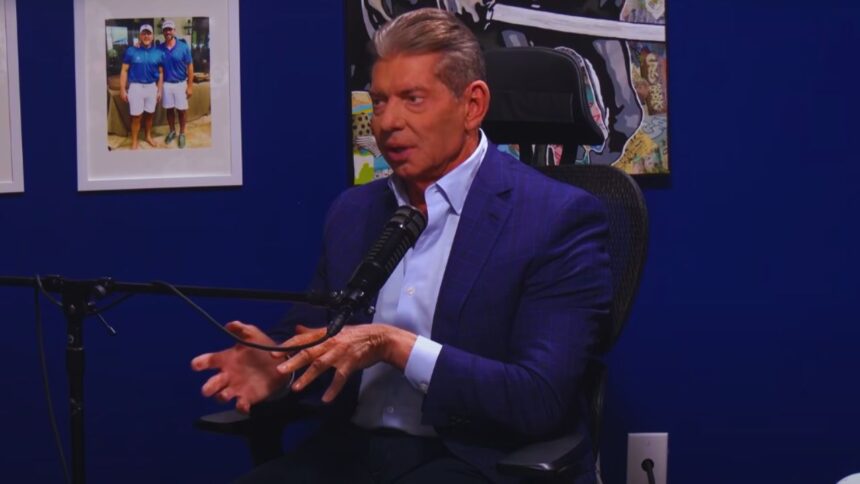In a bold and controversial claim, retired MMA fighter Chael Sonnen has suggested that Vince McMahon, former WWE Chairman, played a crucial role in Donald Trump’s victory in the 2016 US Presidential election. Sonnen, known for his outspoken nature and provocative opinions, shared his theory on a recent episode of the “FLAGRANT” podcast, adding fuel to the already intense discussions about Trump’s campaign strategies.
“You will not convince me that Vince McMahon did not run that [Trump] campaign in 2016,” Sonnen declared emphatically. “I believe Vince ran that. Vince was the greatest influencer. Vince’s number one thing is, ‘Yes, it is business and entertainment but it’s psychology.'”
Sonnen, who once attended a WCW tryout in 1998 and claimed that WWE offered him a $5 million contract, is no stranger to the intersection of sports and entertainment. His statements come from a place of deep understanding of both MMA and professional wrestling industries, making his theory all the more intriguing.
Recalling an event from the campaign trail, Sonnen mentioned that just 11 days before the election, amidst the notorious Billy Bush controversy, McMahon allegedly sent Trump $8 million to sustain his campaign. This financial lifeline, according to Sonnen, was a pivotal moment orchestrated by McMahon.
“He had catchphrases, he had ‘lock him up,’ he started giving them nicknames, he started having the same songs, it was like walk-out music, and he was having chants from the crowd,” Sonnen elaborated. “It was … his campaign was exactly the way Vince McMahon promotes a WrestleMania.”
Sonnen’s comparison draws a direct line between the theatrics of a wrestling match and the spectacle of Trump’s rallies. The rallies were marked by recurring chants, slogans, and a charismatic style reminiscent of a WWE event, where audience engagement and emotional highs are meticulously crafted.
Further supporting his claim, Sonnen pointed out that one of Trump’s first actions in office was appointing Linda McMahon, Vince McMahon’s wife, to his administration. This appointment, Sonnen argues, was not merely coincidental but a strategic placement reflecting McMahon’s influence and support during the campaign.
Sonnen’s allegations shed light on the potential crossover between the worlds of politics and entertainment, suggesting that the lines between these two domains are more blurred than commonly perceived. The idea that McMahon, a master of wrestling psychology and entertainment, could translate his skills to a political campaign adds a layer of complexity to the narrative of Trump’s rise to power.
“Vince’s number one thing is psychology,” Sonnen reiterated. “And what better stage to apply that than in a presidential campaign where capturing the public’s imagination and emotion is key?”
Sonnen’s comments have ignited a flurry of reactions across social media and news platforms, with some dismissing his theory as far-fetched while others find it a plausible explanation for Trump’s unorthodox and highly effective campaign tactics.
The discussion also highlights the broader implications of entertainment strategies in political campaigns. Trump’s campaign was marked by a departure from traditional political rhetoric, leaning heavily into slogans, branding, and audience interaction—elements that are staples of WWE programming.
“He [Trump] started giving them nicknames, he had chants from the crowd,” Sonnen noted, underscoring the similarities between a political rally and a wrestling event. The spectacle, the drama, and the emotional engagement were all there, blurring the lines between reality and entertainment.
As Sonnen’s assertions continue to circulate, they invite further scrutiny into the role of entertainment moguls in political processes. Whether or not McMahon was directly involved, the impact of entertainment tactics on political campaigns is undeniable and may well shape the future of electoral strategies.
Stephen’s Value:
This piece explores Chael Sonnen’s provocative claim that Vince McMahon played a key role in Donald Trump’s 2016 presidential campaign, providing insights into the potential crossover between entertainment and politics. By examining Sonnen’s theory and its implications, the article engages readers in a compelling discussion about the strategies behind Trump’s unexpected rise to power.




